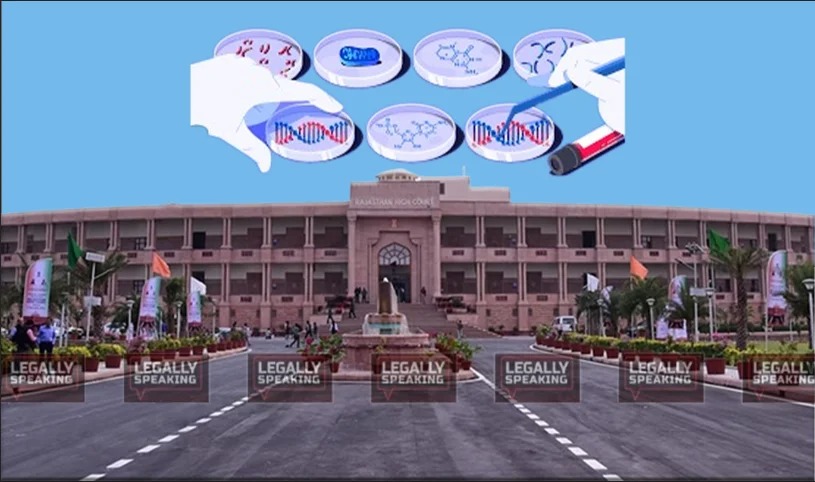
The Rajasthan High Court recently dismissed an application filed by a husband involved in divorce proceedings, wherein he sought to introduce a DNA test as evidence to establish that he was not the biological father of a child born during their marriage.
A single judge Justice Pushpendra Singh Bhati maintained that DNA paternity testing should only be allowed in exceptional circumstances.
The bench stressed that using a DNA test as a means to obtain a divorce on the grounds of adultery, by involving the child, is unacceptable.
“This Court thus finds that the requirement of the DNA Paternity Test can only be in the rarest of the rare and exceptional cases, while duly keeping in mind the best interest of the child as well as the law laid down by the Hon’ble Apex Court,” Justice Bhati stated.
The bench emphasized that the mental and physical well-being of the child should be of utmost importance by stating that, “It is high time that the society and law realize the importance of the child and childhood vis-a-vis the matrimonial disputes, as losing and winning in a marriage is having a dwarfed impact, when it is compared with losing of childhood, in terms of victimizing the child or sacrificing his constitutional right of dignity, at the altar of matrimonial conflicts.”
The single bench was hearing a plea challenging a family court’s decision to deny the husband’s request to amend the divorce petition based on the results of a DNA paternity test conducted on their son.
Notably, the husband did not originally cite adultery as a ground for divorce in his plea.
The court took note of the fact that the DNA test had been conducted without informing or involving the child or the mother in the process.
Taking into consideration the aforementioned context, the court determined that the DNA test infringed upon the child’s rights, which encompass various aspects such as property rights, the right to a dignified life, the right to privacy, and the right to experience the joy and affection bestowed upon them by both parents.
Furthermore, the court emphasized that prior to conducting a DNA test, it was essential for the concerned party to establish that there was no opportunity for the husband and wife to have engaged in relations. However, in the present case, it was established that the parties were residing together at the time of the child’s birth, indicating that they indeed had the opportunity to engage in intimate relations.
The judge added, “The pain of winning or losing a battle of divorce amongst the contesting spouses is much trivial when compared with the rights of the child to have dignity and parenthood.”
Justice Bhati, in light of the circumstances, dismissed the husband’s plea, emphasizing that when faced with a choice between upholding the sanctity of marriage and safeguarding the sanctity of childhood, the court had no alternative but to prioritize the sanctity of childhood. “The parties may or may not lose the marriage, but the spirit of justice cannot afford to lose the child/childhood, as no Court can shut its eyes, so as only to achieve the goal of justice in matrimonial redressals, while losing the battle of parenthood, being detrimental to the childhood.”




